Michael “Micky” Collins is an internationally renowned expert in sports-related concussions and a consultant for multiple professional sports organizations. In this episode, Mickey first explains the definition and diagnosis of a concussion, as well as the diverse signs and symptoms associated with different types of concussions. He discusses the risk factors that contribute to increased susceptibility and/or severity of concussions in certain individuals, emphasizes the significance of prompt treatment, and uses case studies to illustrate the latest in treatment protocols and recovery process. Additionally, Mickey provides insight into the evolving field of concussion treatments, including the exploration of hyperbaric oxygen and synthetic ketones. He gives advice to parents of kids who play sports and discusses the promising prospects in the realm of concussion management.
Subscribe on: APPLE PODCASTS | RSS | GOOGLE | OVERCAST | STITCHER
We discuss:
- Micky’s interest in concussion and how he started the first concussion clinic [3:15];
- Concussion: definition, pathophysiology, and risk factors making someone more susceptible [9:45];
- Symptoms of concussion, predictors of severity, and the importance of early and effective treatment [20:00];
- The six types of concussion, the effectiveness of treatment, and factors that impact recovery [25:45];
- The importance of seeing a specialist and the prognosis for recovery [30:00];
- Case study of a racecar driver who suffered a vestibular concussion [32:15];
- Why vestibular concussions are particularly problematic [42:45];
- A treatment plan for the racecar driver, possible use of medications, and how to address the root cause [45:45];
- Exploring alternative treatments: hyperbaric oxygen, synthetic ketones, and more [52:00];
- The natural history of a concussion if untreated and the effect, if any, of concussion on subsequent risk of brain disease [57:15];
- Chronic traumatic encephalopathy (CTE) [1:01:45];
- Advice for parents of kids who play sports: when and where to seek treatment for a possible concussion [1:04:45];
- Is there any evidence that the APOE4 genotype increases susceptibility to concussion or TBI? [1:10:15];
- The increased risk of concussions in older adults and a case study of a 90-year-old patient who suffered a head injury in a fall [1:11:15];
- Funding for concussion research and fellowship programs to train concussion specialists [1:15:30]; and
- More.
Micky’s interest in concussion and how he started the first concussion clinic [3:15]
How did you come to study concussion?
- When Micky went to college, he didn’t really know what he wanted to do in life
- He had a bunch of family members that were physicians and in the medical field
- He also went to college to play baseball as much as he did to be a student
- He was playing baseball his junior year and when his coach said, “Micky, if you don’t declare a major today, you’re going to be ineligible.”
- He was taking a neuroscience course at the time and biopsychology, so he dove into studying biology and psychology
- He graduated college and knew he wanted to do brain behavior studies
- He got involved in a program at Michigan State University and earned his PhD in clinical psychology with an emphasis in clinical neuropsychology, which is the study of brain behavior
- He took some medical classes through Michigan State as well as clinical psychology and neuroscience courses
- Two or three years into studying at Michigan State he realized he missed sports and wanted to combine traumatic brain injury in sports
- No one had really done that before
- There was no concussion speciality when he went to school
Does this mean that if a patient has a concussion in a sport, and they saw a neurologist, that neurologist wouldn’t really have any particular insight on it?
- This field did not exist when he was in school (‘97, ‘98, ‘99)
- When he arrived at UPMC (University of Pennsylvania Medical Center) he didn’t really know how he was going to make a living doing this
- He didn’t know if he was going to be able to see patients
- There was very little traction in anyone studying this topic (literally nobody)
Micky started the first clinic in the world at UPMC
- When he was getting into this, he knew he wanted to study concussion or mild traumatic brain injury, and he somehow wanted to involve sports
“It’s a hot topic now. At the time no one could care about it.”‒ Micky Collins
- This was around the time that [football players] Troy Aikman, Steve Young, Paul Kariya [NHL player], Ricky Craven (racecar driver) and others started to talk about this topic of concussion
- Micky remembers watching Al Michaels on Monday night football talking about Steve Young’s concussion in 1997 (or ’96 whenever it was)
- He basically said, no one knows anything about this injury
- This topic is just a lot of speculation, but no one really understands about the injury
- At that moment, Micky said to himself, “That’s what I can do.”
- Because it was a perfect marriage of brain trauma and sports, which is what he wanted to do for a living
UPMC sports medicine concussion program
- Long story short, he ended up having two mentors: Mark Lovell and Joe Maroon (who’s a neurosurgeon
- At the time he was doing a fellowship at Henry Ford Hospital in Detroit, and Mark Lovell asked if he wanted to move to Pittsburgh
- They were starting a big orthopedic sports medicine center and wanted them to do a concussion program
- Micky came to Pittsburgh with his mentors Mark Lovell and Joe Maroon, and the three of them started a concussion program in 2000
- They had no patients, no one could care about concussion
- They started researching it slowly but surely and published many papers on it
Study of college football players and concussion
- Micky, Mark Lovell, and others published a big paper in JAMA in 1999 where they looked at college football and concussion at Michigan State University
- Micky always wanted to do research on college football players
- He wanted to baseline test these guys if they had a concussion then repeat the testing to see what they could find
- He naively went to the medical staff of Michigan State and said he wanted to work with the team
- He met with the head coach (Nick Saban) who thought it was a great idea
- Then he started working at the University of Florida, the the University of Utah, then he came to Pittsburgh
- All of the data he collected from these universities was published in JAMA in 1999
This was one of the first groundbreaking studies of looking at concussion in sports
- This study enabled them to start the program in Pittsburgh
- For the first five years, he worked in a cubicle and would see maybe two to three patients a week (if that), and he was doing research
- Fast forward 23 years later, they now have 20,000 patient visits a year in their program
- They’ve published over 450,500 papers, written books, given talks around the world, and it’s probably the hottest topic in sports medicine
“We’ve learned a hell of a lot about this injury over that 23 years, and hopefully we can share some of that wisdom today”‒ Micky Collins
Concussion: definition, pathophysiology, and risk factors making someone more susceptible [9:45]
Everybody’s heard the word concussion, but what actually is it? What is the diagnosis? How subjective versus objective is it? What are the criteria?
- The word “concuss” literally translates from Latin to English to mean “to shake violently”
- Analogy to understand a concussion: think about your brain like an egg yolk inside an eggshell
- The brain is inside this hard cavity
- Pathophysiology ‒ if you have acceleration, deceleration, or translational forces that are hard enough, the brain’s going to shift inside the skull
{End of show notes preview}
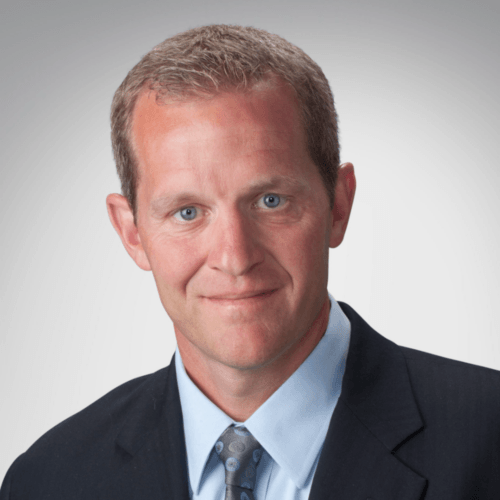
Michael "Micky" Collins, Ph.D.
Michael “Micky” Collins earned his Bachelor’s degree in psychology and biology at the University of Southern Maine where he played in the 1989 NCAA Baseball College World series. He earned a Master’s Degree in Psychology and a Doctorate degree in Clinical Psychology at Michigan State University.
Dr. Collins is a clinical neuropyscholgist and the Executive and Clinical Director and a founding member of the University of Pittsburgh Medical Center (UPMC) Sports Medicine Concussion Program. Established in 2000, this program was the first of its kind, and it remains the largest research and clinical program focused on the assessment, treatment, rehabilitation, research and education of sports-related mild traumatic brain injury in athletes of all levels. The program serves roughly 20,000 patients each year at six locations across Pittsburgh, PA.
In addition to his extensive clinical experience, Dr. Collins has been a lead author on several major groundbreaking studies of high school and college athletes published in JAMA, Neurosurgery, American Journal of Sports Medicine, and Pediatrics, and an author on more than 70 peer-reviewed research articles for other prestigious medical journals. He is a frequently invited presenter at international and national scientific meetings on brain injury in sports, and is often interviewed by local and national news media as an expert source.
Dr. Collins’ professional memberships include the International Neuropsychological Association, National Academy of Neuropsychology, and the North American Brain Injury Society. He serves on the editorial boards of the Journal of Athletic Training and Brain Injury Professional.
Dr. Collins has been instrumental in the development of numerous concussion management programs at the youth sports level nationwide. He has become a national leader in teaching and implementing the proper use of baseline and post-injury neuro-cognitive testing as a tool to help determine injury severity and recovery for safe return to play for young athletes. In addition to training hundreds of physicians and athletic trainers in the diagnosis and management of sports-related concussion, he was the co-lead author of the Centers for Disease Control’s “Concussion Tool Kit for Physicians,” which has been disseminated nationwide to several physician subspecialties as an education standard regarding concussion management. He co-authored the textbook Concussion: A Clinical Profile Approach to Assessment and Treatment, and he co-founded ImPACT, the most widely used computerized sports-concussion evaluation system. Dr. Collins is an advisor to numerous athletic organizations, including USA Rugby, US Lacrosse, Cirque De Soleil, Pittsburgh Steelers, Pittsburgh Penguins, and others. The North American Brain Injury Society recognized Dr. Collins with the 2005 Innovations in Treatment Award, given annually to an individual for developing and implementing innovative and efficacious treatment for persons with brain injuries. [UPMC]


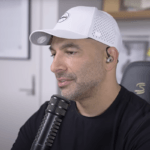
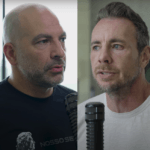
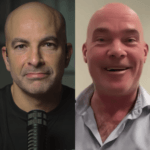
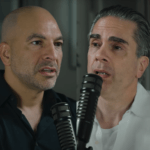
Thank you, this was an extremely interesting subject. My question is if biologically caused injuries to the vestibulocochlear and trigeminal cranial nerves, as in Zoster emergence, can be similarly treated. I was diagnosed with this form of Ramsay Hunt, in 2010, but weeks after initial symptoms and still suffer symptoms.
Thank you for a great podcast. I had a significant brain trauma 20 years ago and still suffer from many of the same symptoms that Dr. Collins described in the show. Is there a protocol for long overdue treatment? Resources for an old injury?
Terrific episode, I learned so much from this. My son will start playing football; it being his 8th grade year. Turns out my risk is probably higher than his at experiencing a concussion, ha! We are fortunate to have pediatric concussion clinic in Austin and I will research to see if they adhere to the methods Dr. Collins pioneered. I’ve shared this episode with my football mom friends to spread the knowledge.
Thank you for an illuminating and informative podcast! I’m a little confused about Dr. Collins’ statement that there are no observable structural changes in the brain with TBI. I learned from a seminar and have read a few research papers that describe physical changes to microglial cells after brain injury. Is this something that is still unestablished or am I confusing terminology?